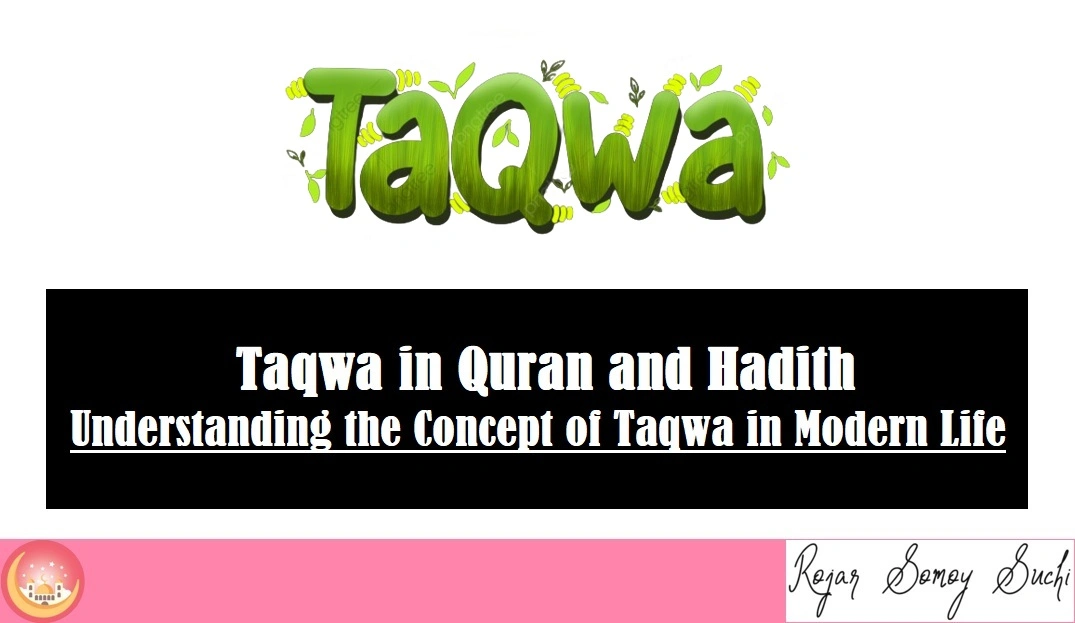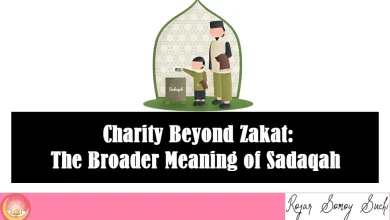
Understanding the Concept of Taqwa in Modern Life: Quran and Hadith: In the midst of the complexities and challenges of modern life, the concept of Taqwa, deeply rooted in the teachings of the Quran and Hadith, offers profound guidance and relevance. Taqwa, often translated as “God-consciousness” or “piety,” transcends mere ritualistic observance; it embodies a state of mindfulness, integrity, and ethical awareness that resonates with the human experience across cultures and epochs.
What is Taqwa?
Taqwa finds its essence in the Quranic verse (49:13), where Allah says, “O mankind, indeed We have created you from male and female and made you peoples and tribes that you may know one another. Indeed, the most noble of you in the sight of Allah is the most righteous of you. Indeed, Allah is Knowing and Acquainted.” Here, righteousness is intricately linked to consciousness of God’s presence and obedience to His commandments.
According to Hadith literature, Taqwa involves guarding oneself against anything that distances from Allah’s pleasure and encompasses both fear of His punishment and hope for His mercy. Prophet Muhammad (peace be upon him) succinctly summarized Taqwa as awareness that permeates one’s heart and actions, guiding them towards righteousness and away from sin.
Relevance in Modern Context
In our fast-paced and interconnected world, the relevance of Taqwa becomes apparent in fostering ethical conduct, social responsibility, and personal integrity. It serves as a moral compass, steering individuals away from dishonesty, corruption, and exploitation towards honesty, fairness, and compassion. Embodying Taqwa encourages mindfulness in speech and action, promoting harmony in interpersonal relationships and societal interactions.
Ethical Decision Making
In professional settings, Taqwa guides decision-making processes by prioritizing ethical considerations over mere financial gain or personal advancement. Business transactions, governance, and leadership are all infused with a sense of accountability to a higher moral standard, fostering trust and sustainability in relationships and institutions.
Social Justice and Compassion
The teachings of Taqwa emphasize compassion towards the marginalized, advocating for social justice and equity. It prompts individuals to stand against oppression, uphold human dignity, and contribute positively to their communities. This resonates deeply with contemporary movements advocating for human rights, environmental stewardship, and inclusive economic practices.
Personal Growth and Well-Being
On a personal level, cultivating Taqwa enhances self-awareness and emotional intelligence. It encourages individuals to reflect on their actions, seek self-improvement, and develop resilience in the face of adversity. By nurturing a mindset of gratitude and contentment, Taqwa fosters inner peace and fulfillment, counteracting the anxieties and stresses prevalent in modern lifestyles.
Practical Steps to Foster Taqwa
- Knowledge and Reflection: Regularly engage with the Quran and Hadith to deepen understanding and application of Taqwa in daily life.
- Prayer and Meditation: Establish a consistent prayer routine to maintain spiritual connection and mindfulness.
- Integrity in Actions: Uphold honesty, fairness, and kindness in all dealings with others, regardless of circumstances.
- Community Engagement: Actively participate in community service and initiatives that promote social welfare and justice.
- Self-Improvement: Continuously strive for personal growth through education, self-discipline, and seeking forgiveness for shortcomings.
Conclusion
In conclusion, [Understanding the Concept of Taqwa in Modern Life] Taqwa offers a transformative framework for navigating the complexities of modern life with integrity and compassion. Rooted in the Quranic teachings and exemplified by the Prophet Muhammad (peace be upon him), Taqwa transcends cultural boundaries, resonating as a universal principle of moral conduct and spiritual growth. By embracing Taqwa, individuals and societies alike can aspire towards a harmonious existence built on righteousness, empathy, and devotion to higher principles.
As we strive to uphold Taqwa in our lives, let us remember the words of the Quran (3:102): “O you who have believed, fear Allah as He should be feared and do not die except as Muslims [in submission to Him].” May Taqwa guide us towards righteousness and grace in all our endeavors.





